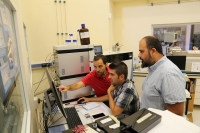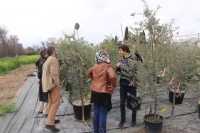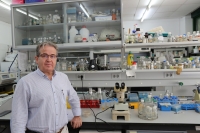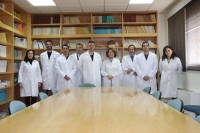Equations help predict the behavior of water in rivers
Escrito por UCC+iUniversity of Cordoba researchers developed a mathematical model that allows for anticipating the failure of dikes that hold in overflowing river water
BIOCONTROL-A. The fight against aflatoxins, the dangerous toxic that contaminates crops
Escrito por UCC+IThe BIOCONTROL-A project seeks to prevent the contamination of almonds and pistachios by toxins produced by several species of fungus
A University of Cordoba research team, for the first time, applied a protein identification technique to this product on a massive scale and found activity of healthy compounds
OLIVE MIRACLE. An application to predict the future of the olive tree
Escrito por UCC+IThe European 'Olive-Miracle' project is developing a model that predicts the behaviour of olive groves in the face of climate change throughout the Mediterranean
Part of the immune strategy of the strawberry plant is characterized
Escrito por UCC+iA University of Cordoba research group classified a gene family responsible for partial control of strawberry defense mechanisms when attacked by common pathogens in crop fields
PARAGONE. The Fight Against 'Helminths', The Parasites Scourging the Livestock Sector
Escrito por UCC+IThe Paragone project is developing new potential vaccines to fight against these pathogens in production animals







